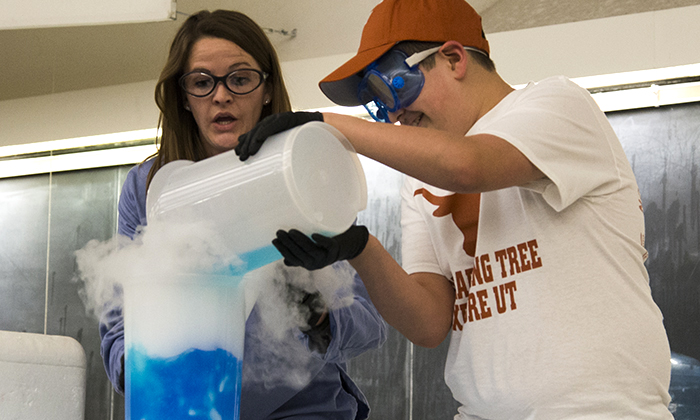HIV Not As Infectious Soon After Transmission As Thought
People who recently have been infected with HIV may not be as highly infectious as previously believed, a finding that could improve global efforts to prevent HIV transmission and save lives.

People who recently have been infected with HIV may not be as highly infectious as previously believed, a finding that could improve global efforts to prevent HIV transmission and save lives.
Jonathan Sessler has battled cancer as a patient, a researcher and an entrepreneur. His lifelong fight met an auspicious milestone this month, when the once-small pharmaceutical research company he co-founded was purchased for $21 billion.
A new method of testing the most common cause of life-threatening infection in people with cystic fibrosis could improve efforts to study and combat the illness.

A woman in a lab coat, protective goggles, and gloves stands at the front of a packed school auditorium and yells, “Do you like science?” The room full of children screams back, “YES!” The woman dumps a vat of hot water into a bucket of liquid nitrogen; instantly, a cloud of nitrogen gas fills the front of the room as children applaud and cheer. Thus ends another demonstration of Fun with Chemistry.
Pi Day, celebrated every year on March 14, corresponds with the first three digits of pi (3.14 also happens to be Albert Einstein’s birthday). Pi pops up anytime you want to mathematically describe a circle, curve or sphere. Here at The University of Texas at Austin, our scientists and mathematicians have reasons to celebrate pi year-round.
Since its completion in 1931, Welch Hall has hosted chemists and many other members of the College of Natural Sciences family. With the Texas Legislature currently weighing a bill to help renovate Welch, we look at some history and fun facts about a place on campus that nearly every Longhorn knows well.
The dramatic drop in cost and time needed to sequence the genomes of animals over the past decade has revolutionized the study of evolutionary relationships. But for scientists who study amphibians, it feels like the genomics revolution has passed them by. More than 100 complete vertebrate genomes have been sequenced and released—including about 40 mammals, 13 fish, 9 birds and 9 reptiles. But amphibians? Just one.
Two assistant professors in the College of Natural Sciences have received Faculty Early Career Development (CAREER) awards from the National Science Foundation totaling more than half a million dollars.
Scientists have discovered a new way to manipulate how cells function, a finding that might help advance an experimental approach to improving public health: DNA vaccines, which could be more efficient, less expensive and easier to store than traditional vaccines.
Discovered nearly a century ago, the Diels-Alder reaction has been used by synthetic chemists in many industries to produce everything from morphine to plastics. It turns out nature, too, may be performing Diels-Alder-like reactions, researchers have found.